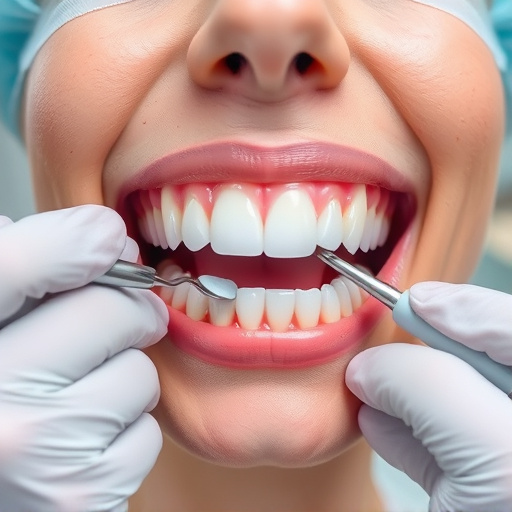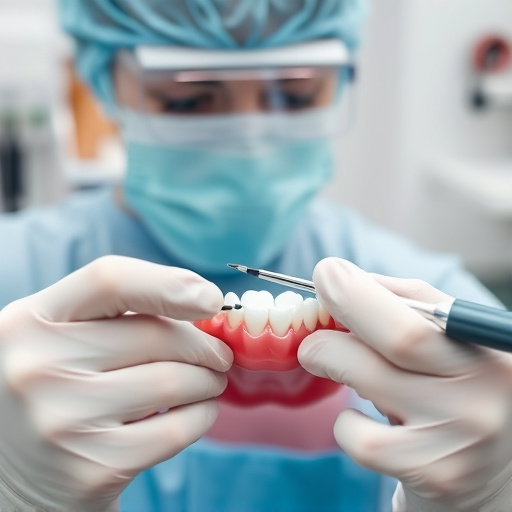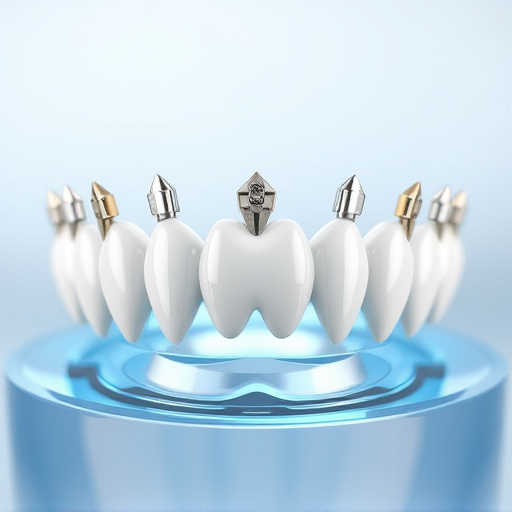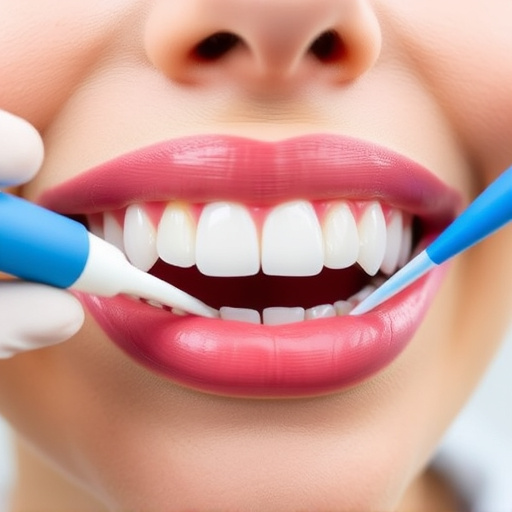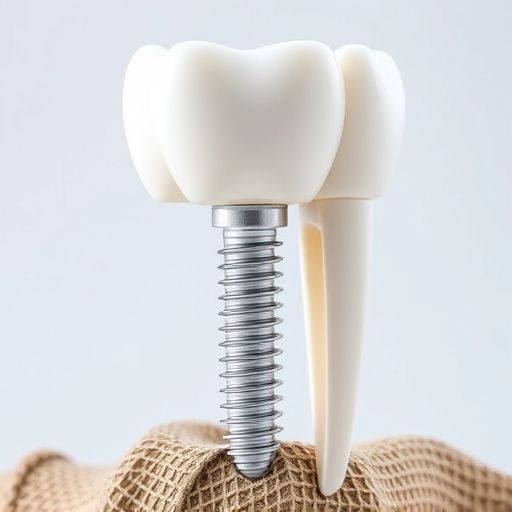Dry mouth (xerostomia) impacts quality of life due to reduced saliva production, caused by lifestyle factors, medical conditions, or dental procedures. Regular dental visits are crucial for monitoring and managing these causes, enabling personalized dry mouth solutions tailored to individual needs, ranging from lifestyle changes to advanced treatments.
“Dry mouth, a common yet often overlooked condition, can significantly impact overall well-being. This article delves into the intricate world of dry mouth, shedding light on its underlying causes. From stress and certain medications to aging and medical conditions, we explore the multifaceted nature of this issue.
We then present a comprehensive guide to targeted dry mouth solutions, categorizing treatments based on specific causes. Learn practical strategies for implementation, ensuring long-term relief from dry mouth symptoms. Discover how these solutions can enhance your daily routine and overall quality of life.”
- Understanding Dry Mouth: Common Causes Unveiled
- – Exploring the definition and impact of dry mouth
- – Identifying prevalent factors contributing to the condition
Understanding Dry Mouth: Common Causes Unveiled
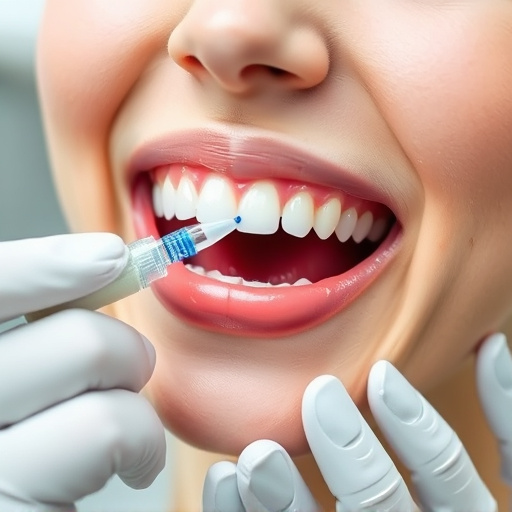
Dry mouth is a common yet often overlooked issue that can significantly impact an individual’s quality of life. It occurs when your mouth doesn’t produce enough saliva, leading to feelings of dryness and discomfort in the oral cavity. This condition isn’t merely a nuisance; it can have underlying causes that range from simple lifestyle factors to more complex medical issues. Understanding these causes is essential in identifying appropriate dry mouth solutions.
Several factors contribute to the development of dry mouth, including certain medications, natural aging processes, and medical conditions such as diabetes or thyroid disorders. Even your diet plays a role; excessive consumption of caffeine or alcohol can lead to dehydration, one of the primary reasons for dry mouth. Dental procedures like clear aligner treatments or general dentistry practices might also temporarily disrupt saliva production. Regular visits to family dentistry offices can help monitor and manage these factors, ensuring personalized dry mouth solutions tailored to each patient’s unique needs.
– Exploring the definition and impact of dry mouth

Dry mouth, also known as xerostomia, is a common yet often overlooked condition that can significantly impact an individual’s quality of life. It occurs when the saliva glands produce insufficient saliva, leading to a persistent feeling of dryness in the mouth. This may seem like a minor inconvenience, but it can have severe consequences. Saliva plays a vital role in maintaining oral health, as it helps to neutralize acids produced by bacteria, prevent tooth decay, and facilitate digestion. When dry mouth goes untreated, it can result in increased susceptibility to dental issues, such as cavities and gum disease, as well as discomfort during eating and speaking.
The impact of dry mouth extends beyond immediate oral health concerns. It is often associated with various underlying conditions, including natural aging, certain medications, and autoimmune disorders. Additionally, factors like environmental conditions, stress, and specific types of medical treatments can contribute to its development. Addressing dry mouth effectively involves identifying and treating the root cause. Common dry mouth solutions range from simple lifestyle adjustments, such as increasing fluid intake and avoiding stimulants, to more targeted interventions like over-the-counter or prescription saliva substitutes, improved oral hygiene practices, and in some cases, clear aligner or other dental treatments for preventive dentistry to mitigate associated oral health risks.
– Identifying prevalent factors contributing to the condition
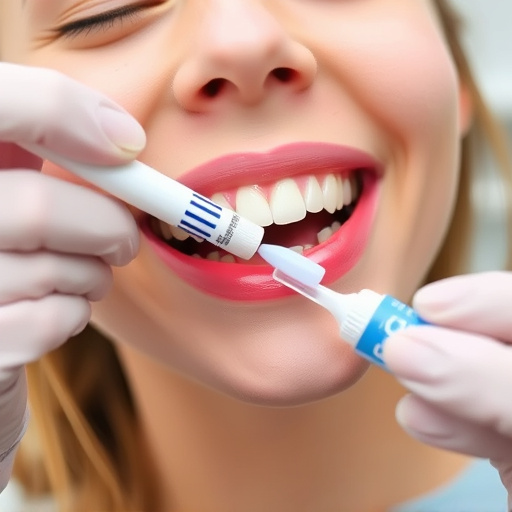
Dry mouth, or xerostomia, is a common condition with various underlying causes. Identifying these factors is crucial when seeking effective dry mouth solutions. Some prevalent contributors include certain medications, where many prescription and over-the-counter drugs list dry mouth as a potential side effect. This is because they can disrupt the body’s natural saliva production.
Additionally, medical conditions like diabetes or autoimmune disorders can lead to dry mouth. Age is another factor; as people age, their salivary glands may not function at optimal levels. Dental procedures such as tooth extractions or placements of dental implants might also cause temporary dry mouth, and managing this symptom is essential for post-operative comfort and healing.
Dry mouth can significantly impact daily life, but understanding its common causes is the first step towards finding effective dry mouth solutions. By identifying factors such as medications, dehydration, and certain medical conditions, individuals can take proactive measures to alleviate symptoms. Incorporating simple lifestyle changes, like staying hydrated and avoiding caffeine, alongside targeted products designed for dry mouth relief, offers a holistic approach to managing this condition and restoring comfort in one’s oral cavity.








